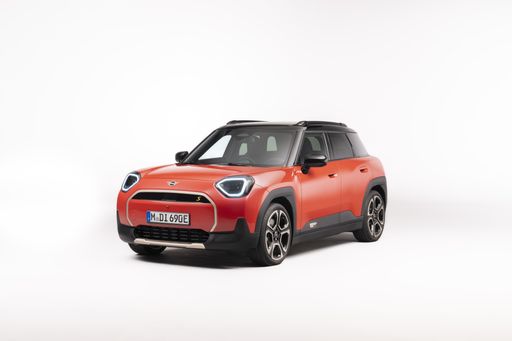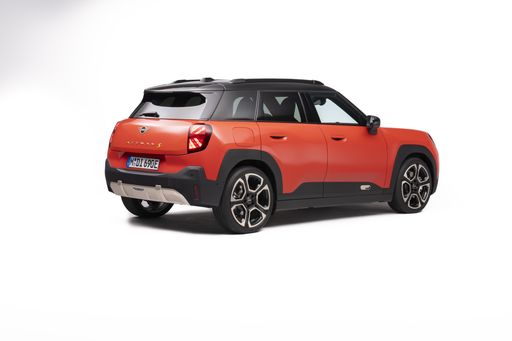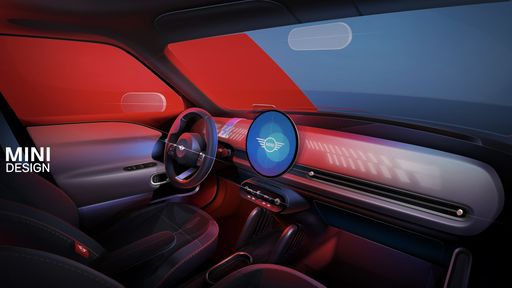MINI Aceman vs Toyota Yaris - Differences and prices compared
Compare performance (258 HP vs 280 HP), boot space and price (25500 £ vs 21900 £) at a glance. Find out which car is the better choice for you – MINI Aceman or Toyota Yaris?
Costs and Efficiency:
When it comes to price and running costs, the biggest differences usually appear. This is often where you see which car fits your budget better in the long run.
Toyota Yaris has a somewhat advantage in terms of price – it starts at 21900 £, while the MINI Aceman costs 25500 £. That’s a price difference of around 3600 £.
Engine and Performance:
Power, torque and acceleration are the classic benchmarks for car enthusiasts – and here, some clear differences start to show.
When it comes to engine power, the Toyota Yaris has a hardly perceptible edge – offering 280 HP compared to 258 HP. That’s roughly 22 HP more horsepower.
In acceleration from 0 to 100 km/h, the Toyota Yaris is somewhat quicker – completing the sprint in 5.50 s, while the MINI Aceman takes 6.40 s. That’s about 0.90 s faster.
In terms of top speed, the Toyota Yaris performs slightly better – reaching 230 km/h, while the MINI Aceman tops out at 200 km/h. The difference is around 30 km/h.
There’s also a difference in torque: Toyota Yaris pulls to a small extent stronger with 390 Nm compared to 350 Nm. That’s about 40 Nm difference.
Space and Everyday Use:
Whether family car or daily driver – which one offers more room, flexibility and comfort?
Both vehicles offer seating for 5 people.
In curb weight, Toyota Yaris is significantly lighter – 1090 kg compared to 1720 kg. The difference is around 630 kg.
In terms of boot space, the MINI Aceman offers minimal more room – 300 L compared to 286 L. That’s a difference of about 14 L.
In maximum load capacity, the MINI Aceman performs barely noticeable better – up to 1005 L, which is about 70 L more than the Toyota Yaris.
When it comes to payload, MINI Aceman hardly perceptible takes the win – 530 kg compared to 525 kg. That’s a difference of about 5 kg.
Who comes out on top?
Overall, the Toyota Yaris shows itself to be edges out slightly and secures the title of DriveDuel Champion.
It convinces with the more balanced overall package and proves to be the more versatile choice for everyday use.

Toyota Yaris
Costs and Consumption
View detailed analysis
Engine and Performance
View detailed analysis
Dimensions and Body
View detailed analysis
MINI Aceman
The MINI Aceman squeezes classic MINI charm into a sharper, more crossover-ready shape, trading some of the old curves for grown-up practicality while keeping the wink-and-grin personality buyers crave. Inside it's a surprisingly premium, customizable cabin that feels clever rather than cluttered, and on the road the Aceman is eager and nimble — ideal for city dwellers who want an SUV silhouette with proper fun behind the wheel.
details


Toyota Yaris
The Toyota Yaris is a sprightly city hatch that packs clever packaging, surprising comfort and fuel-sipping manners into a neat, easy-to-park package. It rewards sensible buyers with low running costs, friendly ergonomics and a forgiving drive, delivered with Japanese reliability and just enough personality to make errands feel a little less ordinary.
details

Costs and Consumption |
|
|---|---|
|
Price
25500 - 36200 £
|
Price
21900 - 46700 £
|
|
Consumption L/100km
-
|
Consumption L/100km
3.8 - 9.5 L
|
|
Consumption kWh/100km
14 - 16 kWh
|
Consumption kWh/100km
-
|
|
Electric Range
303 - 405 km
|
Electric Range
-
|
|
Battery Capacity
38.5 - 49.2 kWh
|
Battery Capacity
-
|
|
co2
0 g/km
|
co2
87 - 215 g/km
|
|
Fuel tank capacity
-
|
Fuel tank capacity
36 - 50 L
|
Dimensions and Body |
|
|---|---|
|
Body Type
SUV
|
Body Type
Hatchback
|
|
Seats
5
|
Seats
4 - 5
|
|
Doors
5
|
Doors
3 - 5
|
|
Curb weight
1720 - 1825 kg
|
Curb weight
1090 - 1356 kg
|
|
Trunk capacity
300 L
|
Trunk capacity
141 - 286 L
|
|
Length
4079 mm
|
Length
3940 - 3995 mm
|
|
Width
1754 mm
|
Width
1745 - 1805 mm
|
|
Height
1514 mm
|
Height
1455 - 1500 mm
|
|
Max trunk capacity
1005 L
|
Max trunk capacity
935 L
|
|
Payload
450 - 530 kg
|
Payload
289 - 525 kg
|
Engine and Performance |
|
|---|---|
|
Engine Type
Electric
|
Engine Type
Full Hybrid, Petrol
|
|
Transmission
Automatic
|
Transmission
Automatic, Manuel
|
|
Transmission Detail
Reduction Gearbox
|
Transmission Detail
CVT, Manual Gearbox, Automatic Gearbox
|
|
Drive Type
Front-Wheel Drive
|
Drive Type
Front-Wheel Drive, All-Wheel Drive
|
|
Power HP
184 - 258 HP
|
Power HP
116 - 280 HP
|
|
Acceleration 0-100km/h
6.4 - 7.9 s
|
Acceleration 0-100km/h
5.5 - 9.7 s
|
|
Max Speed
160 - 200 km/h
|
Max Speed
175 - 230 km/h
|
|
Torque
290 - 350 Nm
|
Torque
390 Nm
|
|
Number of Cylinders
-
|
Number of Cylinders
3
|
|
Power kW
135 - 190 kW
|
Power kW
85 - 206 kW
|
|
Engine capacity
-
|
Engine capacity
1490 - 1618 cm3
|
General |
|
|---|---|
|
Model Year
2024 - 2025
|
Model Year
2024 - 2025
|
|
CO2 Efficiency Class
A
|
CO2 Efficiency Class
B, G
|
|
Brand
MINI
|
Brand
Toyota
|
Is the MINI Aceman offered with different drivetrains?
The MINI Aceman is available as Front-Wheel Drive.
The prices and data displayed are estimates based on German list prices and may vary by country. This information is not legally binding.




